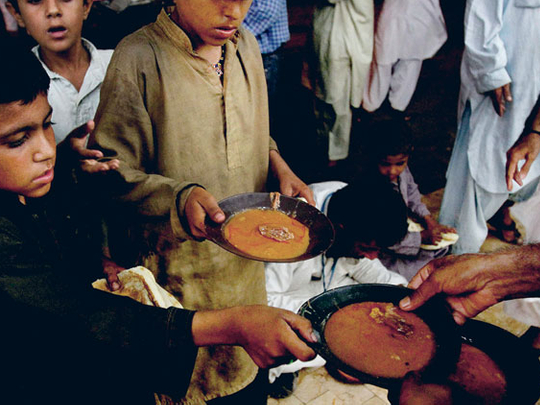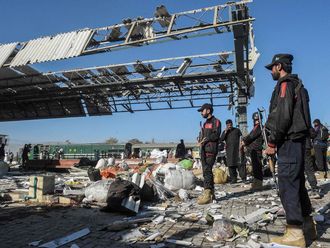
Karachi: Hundreds of Taliban fleeing from Pakistan's restive northwest have taken refuge in the teeming commercial hub of Karachi, where a growing nexus with banned militant organisations is a headache for law enforcement.
A huge Pashtun population, mostly in the suburbs of the city of 18 million people, provides shelter to these militants, according to security officials.
Pakistan's financial capital has largely been spared direct militant attacks. But the man accused in the failed New York bombing, Faisal Shahzad, and his contacts in Karachi have highlighted the militant networks operating here.
The arrest of dozens of low-key members of the Tehreek-e-Taliban Pakistan (TTP), the Taliban Movement of Pakistan, from the metropolis is evidence of their presence, officials say, and they have developed close ties to banned outfits as well as criminals.
A senior security official involved in anti-militant operations said militants are now working in smaller, independent groups, with no direct link to the central command, which makes it tougher to turn small catches into larger successes.
"The TTP and most of the jihadi outfits like Lashkar-e-Jhangvi, Jaish-e-Mohammad and Jundullah share the same ideology, and in Karachi we have established that they are working together," said the official, requesting not to be named.
"They work in groups of 10-15 people, with one local amir [commander] and at times with no direct link to the main TTP leaders like Hakimullah Mehsud, so it makes it very difficult to trace their wider links," he said. "And these groups not only have Pashtun militants, but also those from Punjab and Balochistan, and even locals."
Officials said the groups, mostly working independently of each other, are involved in extortion rackets, bank robberies and kidnappings, as well as planning new attacks.
Extortion
"A key source of funds for the Taliban is extortion, especially from the well-settled Pashtun businessmen in Karachi," said another senior security official.
"It's simple. They send a letter to them demanding money and nobody dares say no. And if the businessmen refuse, their families and properties back in the northwest will not be safe," said the official.
The groups often kidnap relatives of wealthy Karachites in the tribal areas, he said, and extort ransoms from their local targets.
Officials said there is also evidence of the involvement of these militants in cyber crimes.
"Some of these militants have managed to make illegal money transfers from other people's accounts using the online banking systems. We have arrested a few people already and are investigating further," said one official.
Officials said there would have been more attacks in Karachi, but for the city's massive intelligence network.
"There have been too many arrests to suggest that they have not attempted attacks on Karachi, but they have been foiled," said the first official.
Last year, militants attempted to target the city's main oil storage depot next to the country's largest port. "That attack would have been a disaster and thankfully we managed to foil that," said Chaudhry Aslam, a senior police official who arrested the alleged masterminds of the attack.
"The man behind that attack was Akhtar Zaman, the Karachi commander of TTP, and he hailed from Waziristan," he said.
He also said that Karachi police have arrested dozens of TTP militants from Waziristan, some of them with ready-to-use suicide jackets and huge quantities of explosives and sophisticated weapons.












